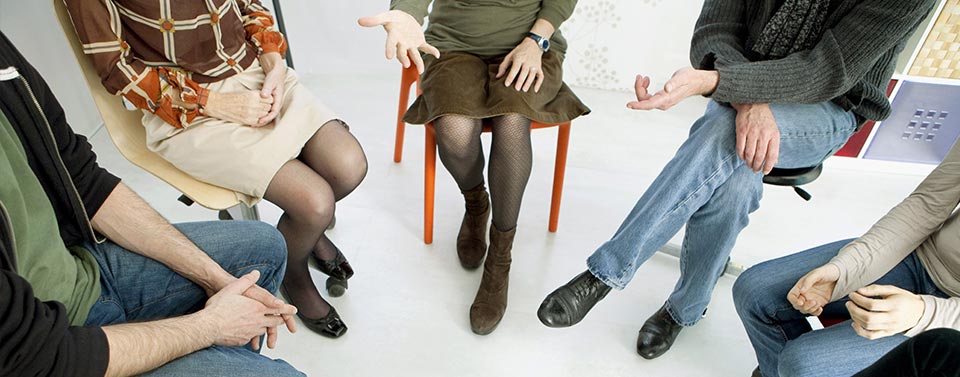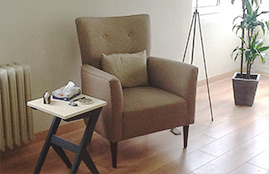Group therapy
What happens in group therapy?
In group therapy, people experiencing emotional difficulties come together to discuss, and work through, their problems. What makes group therapy special is the ability to learn through experience. The way you interact with other people, and the feelings that are thrown up when you do, can give you a lot of insight into yourself and the way you see the world. This knowledge is very useful when we're unhappy, because our instinctive patterns of thought and behaviour - the things we do unquestioningly - often feed our distress.
We don't leave you to decipher all this alone when you come to group therapy. All sessions are run by a therapist. Your therapist is there to help guide conversation between group members, and, whenever useful, offer interpretations of things that have been said.
You'll get feedback and advice from other group members too, and very importantly, you'll feel supported. Some sessions involve group activities. These might focus on solving problems, building trust or learning new skills.
There are usually 6 to 12 people in a group therapy session. Some people say less during early sessions and prefer to observe more than participate. This is absolutely fine; group therapy is about working at your own pace.
What sort of issues can group therapy help with?
In terms of its aims, group therapy isn't so different from one to one therapy. It can be beneficial for all sorts of problems, including:
- depression
- fear and anxiety
- self-esteem issues
- recovery from trauma
- stress, including workplace stress
- feeling discontented with life, wanting 'something more'
- relationship problems
- family problems
- loneliness, feelings of isolation
It can also help people become more aware of: - their relationship to family, community, and the wider world
- how and where to find support
Is group therapy right for me?
Group therapy is perfect for anyone who would like to try therapy but feels comforted by the idea of sharing their thoughts and feelings alongside others. It can also be very cost-effective. Some people come simply because they wish to explore who they are and feel part of a larger whole. It's ever so easy to feel alone with our thoughts and feelings. Group therapy reminds us that we're not.
What happens in our support groups?
In support groups, people with a common issue come together to discuss their experience of the problem, and to share coping strategies. The members of a support group may all be suffering from a physical illness, for example, or struggling to adjust to life in a new country. This differs from group therapy sessions, in which people may be experiencing a wide range of difficulties.
There's lots of reasons to join a support group. One is the comfort that comes with knowing there are other people like you. Many people tell us they feel liberated by the fact they can talk freely about their feelings and express negative emotions if they need to. Just as with group therapy, all sessions are run by a therapist. The therapist is there to help facilitate conversation, and offer individual help when needed.
We are very happy to chat in more detail about any of our therapies. To find out more, or to make an appointment with us, please contact us.


